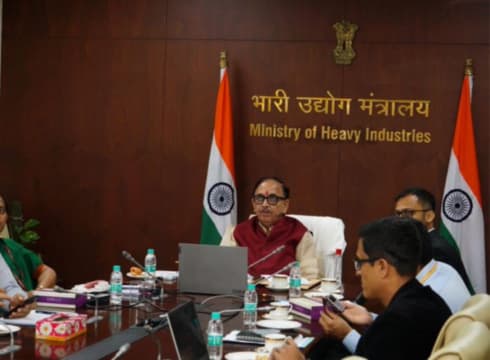The government is mulling making it easier for automakers, including EV manufacturers, to avail benefits under the PLI scheme for automobiles and auto components
Automakers will be allowed to avail the PLI benefits by submitting sourcing and pricing details of all the vehicle parts from Tier 1 suppliers, instead of providing details up to Tier 3 suppliers
A number of two-wheeler EV manufacturers, including Hero Electric and Okinawa Autotech, are under the scanner for claiming FAME-II subsidy despite violating localisation norms
Inc42 Daily Brief
Stay Ahead With Daily News & Analysis on India’s Tech & Startup Economy
At a time when the government is tightening the noose around the electric vehicle (EV) manufacturers, particularly in the two-wheeler space, for wrongly claiming subsidies under the FAME-II scheme, it is reportedly mulling making it easier for automakers, including EV manufacturers, to avail benefits under the production-linked incentives (PLI) scheme for automobiles and auto components.
The government has decided not to seek complex details on localisation as it had planned initially for claiming incentives under the INR 25,929 Cr PLI scheme, the Economic Times reported.
The PLI scheme for the automobile and auto component Industry, along with FAME-II scheme with a total outlay of INR 10,000 Cr and the PLI scheme for Advanced Chemistry Cell (ACC) with an outlay of INR 18,100 Cr, was launched with an aim to help India leapfrog from traditional fossil fuel based automobile transportation system to environmentally cleaner, sustainable, advanced, and more efficient EV based system.
Under the PLI scheme for the auto industry, vehicle and component manufacturers from both EV and internal combustion engine (ICE) vehicle segments have been shortlisted. The scheme has two components – Champion OEM Incentive Scheme and Component Champion Incentive Scheme.
New-age EV manufacturers, including Ola Electric, Hop Electric, and Boom, are among the shortlisted names, along with Mahindra & Mahindra, Hero MotoCorp, Bajaj Auto, and 14 other OEMs.
To make it easier for the manufacturers, the government will reportedly allow automakers to avail the benefits under the PLI scheme by submitting sourcing and pricing details of all the vehicle parts from their Tier 1 or direct suppliers, instead of providing details up to Tier 3 suppliers or subcontractors, people aware of the matter told the publication.
For the uninitiated, in the automotive space, Tier 1 suppliers are the ones supplying parts to the OEMs directly. Tier 3 suppliers supply raw materials to Tier 1 and 2 suppliers as well as the OEMs.
Officials told the publication that the proposed change has also been enshrined in the standard operating procedures (SOPs), which are currently in the draft stage but have been decided upon by the Ministry of Heavy Industries (MHI).
“The Tier 1 suppliers need to ensure that they are locally sourcing their parts. This will be covered in the commitments sought from the automobiles and auto components makers that are the targeted beneficiaries of the PLI scheme,” a senior government official was quoted as saying.
Amid its emphasis on Make In India products, the government had earlier decided to seek data up to Tier 3 suppliers to ensure adequate value generation in the domestic market. However, as per the report, automakers were finding it difficult to get such data as their suppliers denied sharing such commercially sensitive information.
As per the new SOPs, Tier 1 suppliers would be required to issue a declaration stating the percentage share of domestic value added in the parts sold to the automobile manufacturers, sources told the publication. A chartered accountant would have to certify the domestic value addition (DVA) declaration.
It is pertinent to note that last year localisation-related issues were also flagged with the government’s ambitious FAME-II scheme, which is focused on boosting the domestic EV industry.
Electric two-wheeler OEMs including Hero Electric, Okinawa Autotech, Revolt, and Ampere Vehicles were among the first few to come under the scanner for claiming FAME-II subsidy without adhering to the minimum localisation norms.
With the scrutiny ongoing and the MHI barring several OEMs from receiving the subsidy, India’s electric vehicle sales have taken a hit. After seeing registration of 77,095 electric two-wheelers in October last year, the number has been on a decline. Two-wheeler EV registrations stood at just 65,891 units in February 2023.
Note: We at Inc42 take our ethics very seriously. More information about it can be found here.


